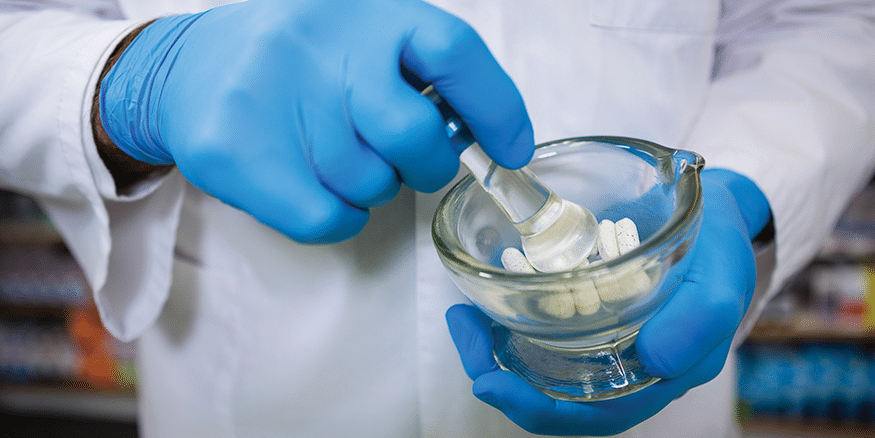Every day, veterinarians recommend everything from antibiotics to parasite preventatives and anti-seizure drugs. But what if none of the medication options are suitable for your pet’s particular illness or if your pet refuses to take pills? In order to make sure your furry family member receives the prescription they need, your veterinarian may then decide to prescribe a compounded drug. Compounding is the act of combining, blending, or changing substances to produce a treatment specific to the needs of a single animal or a small group of animals, and these medications can be essential in veterinary medicine. Pharmacy technicians or veterinarians frequently create compounded medications for animals. Most people think compounding medications are restricted to human use, but studies have shown that they helped cure many animals, including pets, with severe injuries and diseases. The compounding technique works best when the pet is fully vaccinated, and the veterinarian knows what kind of allergies the pet has, so the prescriptions should be according to that. Below is what you should know about compounding pharmacies and why they might be the best choice for some pets.
Reasons to choose compound medications for your pet
Unavailability of the required drug: There may be a chance when your pet needs a medicine that isn’t available from the veterinarian or the regular pet pharmacy. In that situation, rather than rushing to far away medical stores, you can get a prescription from your pet’s doctor for customized medications with the appropriate dosage of drug required. That way, you can treat emergency complications of your furry baby without wasting any time.
Unsuitability of counter medicines: Your veterinarian may suggest working with a compounding pharmacy to develop the best-compounded medication for your pet’s specific needs if none of the available pharmaceutical options are adequate for their condition. For instance, it’s possible that your cat requires a daily pill to manage hyperthyroidism but won’t take oral or concealed drugs. Or maybe a dog needs anti-seizure medication, but the dosage he needs isn’t offered in pill form. A medicine can be modified by compounding pharmacies into precise dosages and administration-ease formulas.
The foul taste of the medicines: Many times, pets refuse to consume a pill even though they aren’t allergic to it. Even if you mix the drug in their food, they can sense it and won’t eat it. It could be because they might not like the taste of the medications. Many dogs don’t like deworming medications given by their vet. In such cases, you can formulate compound medicines from a compound pharmacy by taking a prescription from the veterinarian, observing what your pet actually likes, and blending the taste of the medicine according to that.
Increasing the effect of the medicines: You can boost the effectiveness of some drugs your pet requires. This will multiply the treatment and improve the results to a greater extent. The recovery process will take lesser time, and your pet can even cure disease faster. Your pet’s doctor can prescribe the medicine with the exact dosage, but the effect will be double the actual drug. This way, your pet’s condition can improve with lesser medications and time.
Improving the results: Sometimes, few medications work best in combination, which is not available in regular pharmacies. To produce better results for your pets, compound medications can generate formulas that work for their health benefits. Compounding is typically only used when current pharmacological choices are unsuccessful or inappropriate for your pet’s particular needs. If all other treatments are unsuccessful or the pet is difficult to medicate, a compounded medication may be the only chance for survival.
However, it’s crucial to remember that compounded medications are only available with a prescription and must be filled by a pharmacist or veterinarian.



